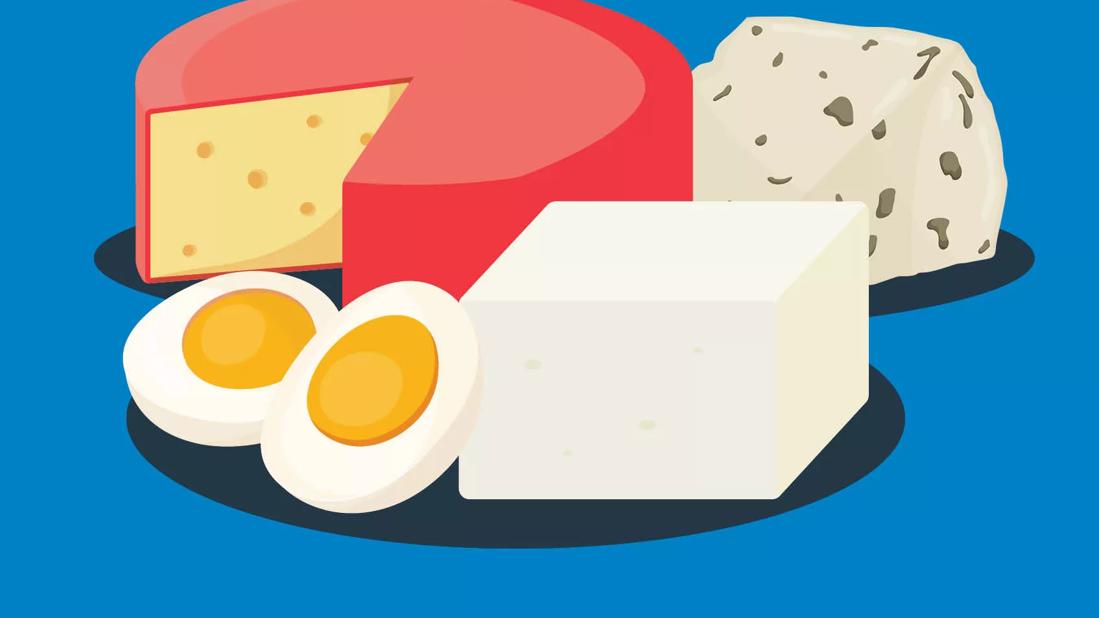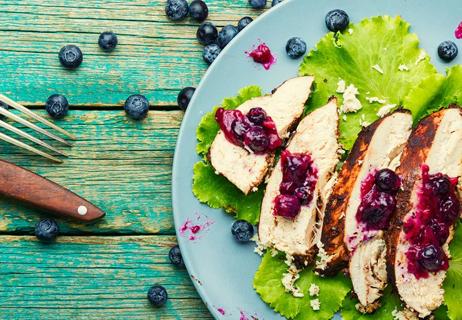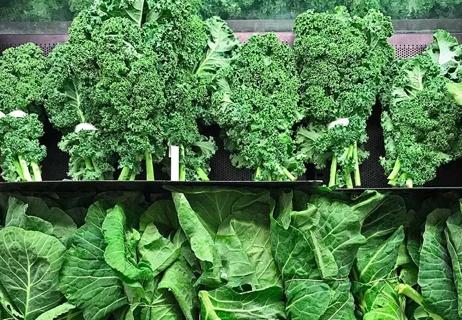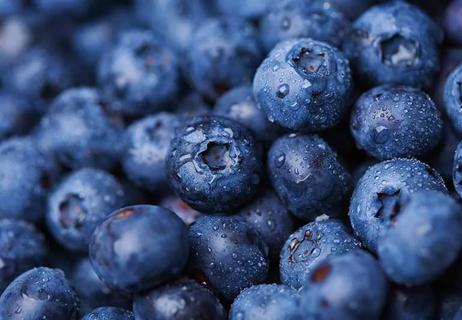Vitamin K2 is gaining recognition for its effects on blood clotting, heart health and bone health

You may have heard about vitamin K. It plays a big role in blood clotting, bone health and heart health.
Advertisement
Cleveland Clinic is a non-profit academic medical center. Advertising on our site helps support our mission. We do not endorse non-Cleveland Clinic products or services. Policy
What you may not know is that vitamin K is actually a name given to a class of vitamins. What we commonly think of as vitamin K includes vitamin K1 (also called phylloquinone), as well as vitamin K2 (menaquinone). They work differently in your body and come from different food sources.
Vitamin K1 comes from plant sources, like leafy greens and blueberries. While vitamin K2 is more common in animal products, fermented foods and some kinds of cheese. It stays in your body longer than vitamin K1 and holds the potential for some serious health benefits that are just now starting to come to light.
“I think we’ve always known that there’s a vitamin K2, I just don’t think we’ve really ever given it enough credit for how much work it does in the body,” says registered dietitian Julia Zumpano, RD, LD.
Zumpano helps us understand the health benefits of vitamin K2 and how to get more of it in your diet.
Think of vitamin K as a collection of vitamins that play a similar role in your health. That class is made up of vitamin K1, as well as vitamin K2 and vitamin K2’s 10 subtypes, known as MK-4 to MK-13.
“Vitamin K is a class of vitamins, like citrus fruits are a class of fruits,” Zumpano says. “Think of oranges, grapefruits, limes and lemons. They may grow on different trees and have different tastes, but at the end of the day, they’re all citrus fruits. It makes sense for them to be grouped together because they share a lot of common traits.”
Advertisement
The same is true of vitamin K. K vitamins are fat-soluble, meaning they dissolve in fats and oils. And they play important roles in blood clotting, bone health and heart health.
Vitamin K isn’t unique in this regard. Lots of vitamins are named by a single letter but have various subtypes. B vitamins, for example, are broken down into eight subtypes.
Zumpano says the exciting thing about vitamin K2 is that it’s absorbed by your body more slowly than vitamin K1. Whereas vitamin K1 is quickly filtered out of your blood — often within a matter of hours, vitamin K2 has the potential to be longer-lasting. That means it stays in your body longer — several days even — and has more time to do its good work.
“The absorption of vitamin K1 is pretty low because of its structure. It’s a shorter chain, so it gets filtered through your liver more quickly,” Zumpano explains. “The thinking is that vitamin K2 has the potential to have more influence on your body because it’s a longer chain, so your body is slower to absorb and digest it.”
There’s still much to be understood about the differences between vitamin K1 and vitamin K2, and research is ongoing. Zumpano details what we do know about K vitamins, and vitamin K2 specifically, including some of its most important benefits.
One of the main functions of K vitamins is to allow your blood to clot. In fact, the “K” in vitamin K is in reference to the German word “koagulation,” which translates to “coagulation” or the ability to clot (or thicken) blood.
Blood clots may sound like a bad thing — and they can be. After all, blood clots can travel to your brain and cause strokes. And clots in your arteries cause heart attacks.
But a certain amount of clotting-ability in your blood is important for your health. The ability for your blood to clot is what keeps you from bleeding out after an injury. Blood that’s too thin can make you bruise more easily and even leave you at risk for dangerous internal bleeding.
Vitamin K can help keep your blood not too thick and not too thin. In the words of Goldilocks, it keeps your blood just right.
At this point, researchers have yet to determine if vitamin K1 or vitamin K2 are equally responsible for clotting or if one is any more effective than the other when it comes to blood clotting.
When you think of strong and healthy bones, you may be tempted to think of calcium as the main nutrient to prevent fractures and osteoporosis.
And it’s true that calcium is an important part of bone health. But research is showing that calcium doesn’t act alone.
Advertisement
“Having low levels of vitamin K is associated with a higher risk of bone fractures,” Zumpano notes. “We’ve always put so much emphasis on calcium for bone health. But in reality, vitamin D, vitamin K and calcium all actually work together.”
Vitamin K helps activate a protein called osteocalcin, which binds to calcium to build bones. That makes vitamin K an essential component of bone health.
Some early studies are showing that vitamin K2 supplements may reduce fractures and improve bone quality in people with osteoporosis.
In Japan and other parts of Asia, one kind of vitamin K2 (MK-4), is used as a treatment for osteoporosis.
In addition to its positive effects on blood clotting and strong bones, vitamin K helps keeps your heart healthy. That’s because of the way it acts to clear out calcium from your blood vessels.
When calcium builds up in your body, it can lead to hardening (or calcification) of your tissues, organs and blood vessels. Calcium deposits in your arteries can lead to high blood pressure, kidney disease and more.
“Vitamin K has been shown to help activate a protein that helps prevent calcium from depositing in your arteries,” Zumpano explains. “Calcium deposits contribute to the development of plaque, so vitamin K does a lot of good for your heart health.”
Advertisement
Some early research has shown that vitamin K2 may be more effective at clearing out calcium than vitamin K1.
One study found that people who took in at least 32 micrograms per day of vitamin K2 in their diet were 50% less likely to die from heart disease related to hardened arteries. People in that study didn’t consume any vitamin K1.
Other research showed that women who had a high intake of vitamin K2-rich foods (but not vitamin K1) were less likely to experience cardiovascular events, like heart attacks and strokes. For every 10 micrograms of vitamin K2 they consumed per day, their risk of heart disease decreased by 9%.
The European Food Safety Authority has approved a health claim for vitamin K, noting that “a cause-and-effect relationship has been established between the dietary intake of vitamin K and the maintenance of normal bone.”
While food safety organizations in parts of Asia and Europe officially acknowledge some health benefits of vitamin K, the U.S. Food and Drug Administration (FDA) hasn’t authorized a health claim for vitamin K. Essentially, that means more research needs to be done for the FDA to back vitamin K as a significant contributor to health.
But if you’re looking to add more vitamin K2 to your diet, know that some of the top sources of vitamin K-rich foods aren’t ones we typically see as part of a healthy diet. Whereas vitamin K1 is abundant in leafy greens and other “health foods,“ vitamin K2 is found in a lot of foods that aren’t typically recommended as part of a heart-healthy diet.
Advertisement
“Vitamin K2 is often found in animal products and fermented foods, as opposed to natural, plant food sources,” Zumpano notes. “But that’s not a hard-and-fast rule. There are some foods that are both naturally healthy and rich in vitamin K2.”
Some of the foods highest in vitamin K2 include:
People who take blood thinners should talk with their healthcare provider before increasing their intake of vitamin K1 or vitamin K2.
Additionally, some research suggests that vitamin K2 supplements may be beneficial for some people. Vitamin K1 is most useful for your body when it’s eaten in its natural form. That’s because of its shorter absorption time, Zumpano says.
Vitamin K2, however, may be an effective supplement because it isn’t used up by your body as quickly. That means that the supplements could have a chance to work, rather than simply pass through your system as waste.
While much is still to be learned about vitamin K2, the signs so far point to an underutilized and underappreciated powerhouse for our bodies.
“It’s exciting to see that we’re learning more all the time about vitamin K2 and its potential,” Zumpano says. “It really does seem to be something that will get more attention and will make a difference for a lot of people’s health as we learn more.”
Learn more about our editorial process.
Advertisement

Babies are born with very little of this vitamin, which plays a critical role in the blood clotting process

Calcium, vitamin D and magnesium are essential — but you should supplement under doctor’s orders

Both micronutrients support body functions, but there are key differences, like what foods have them and what jobs they do

It’s always best to talk to a healthcare provider before taking any supplements to avoid toxicity

From leafy greens to heart-healthy oils, the selection is abundant

Vitamin K2 foods aren’t the usual suspects

It helps your bones stay strong and your blood clot, but it may also do so much more

Olive oil is high in heart-friendly unsaturated fats

Wearing a scarf, adjusting your outdoor activities and following your asthma treatment plan can help limit breathing problems

Your diet in the weeks, days and hours ahead of your race can power you to the finish line

When someone guilt trips you, they’re using emotionally manipulative behavior to try to get you to act a certain way